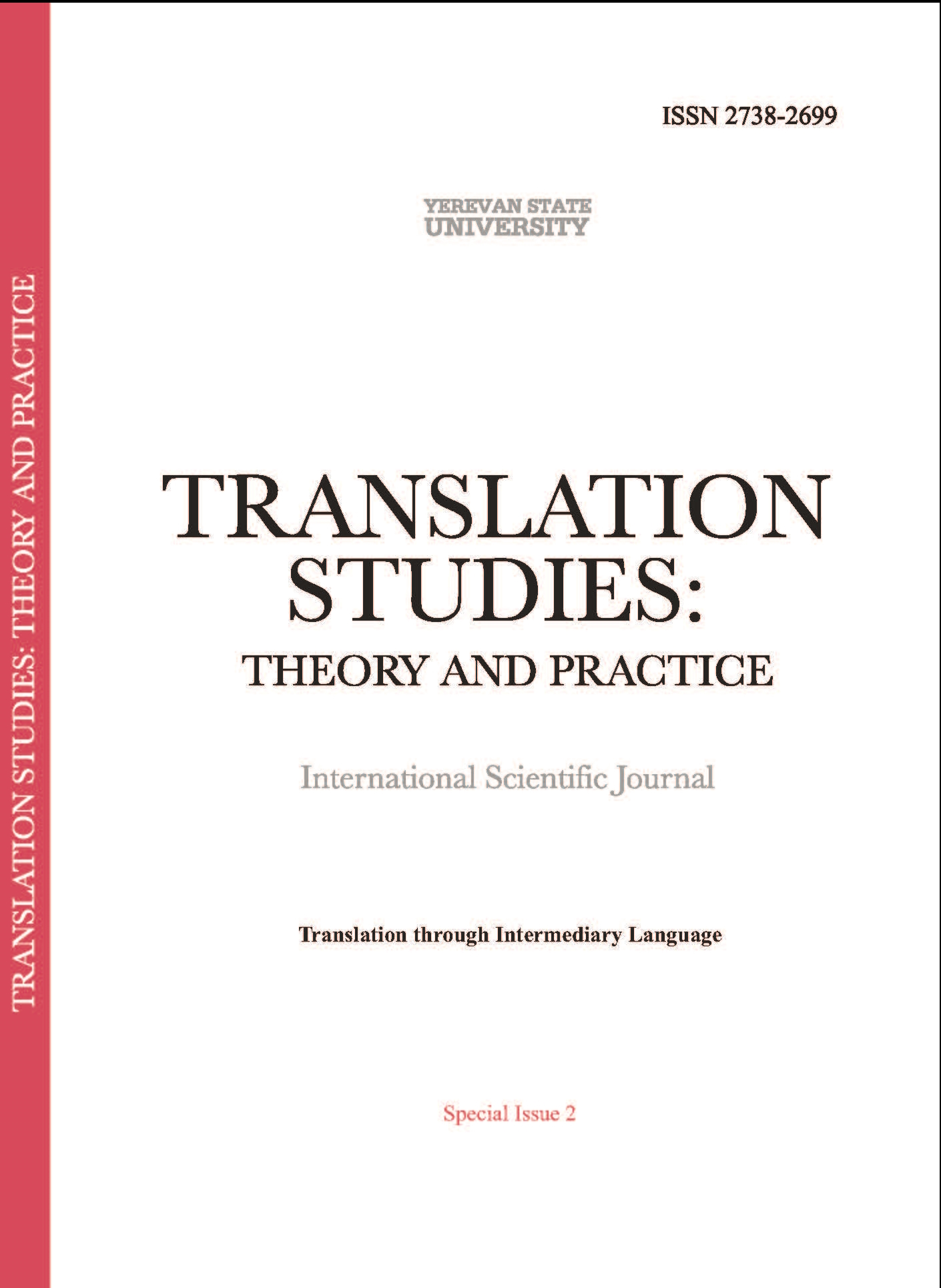Literary and Cultural Enrichment in Soviet Armenia: Exploring Russian-Mediated Translation Traditions in the Soviet Era
DOI:
https://doi.org/10.46991/TSTP/2024.SI.2.147Keywords:
literary and cultural enrichment, Soviet Armenia, Russian as an intermediary language, mediated translation, direct translationAbstract
This paper seeks to underline the pivotal role the Russian language played in nurturing a rich educational and cultural atmosphere in Soviet Armenia. In fact, Russian greatly contributed to the shaping of the educational environment exerting immense influence on the academic progress and intellectual growth. It aims to provide insight into the translation traditions prevalent in the Soviet era where Russian assumed the crucial role of a cultural facilitator. In fact, it served as an intermediary language for not only Armenia, but also other Soviet republics making the large body of foreign literature accessible for Soviet readers. Yet, following the abolition of the Soviet regime, translation practices and methodologies experienced a sudden transformation guaranteeing the rapid transition from translations mediated by Russian to direct translation approaches. We believe this study will help shed light on the interplay of language and culture in the context of Armenian’s historic journey from the Soviet era to the present day.
References
Abrahamyan, Levon. 1998. “Mother Tongue: Linguistic Nationalism and the Cult of Translation in Postcommunist Armenia.” In Berkeley Program in Soviet and Post-Soviet Studies Working Paper Series. Accessed February 10, 2024. https://iseees.berkeley.edu/sites/default/files/1998_01-abra.pdf
Alpatov, V. M. 2000. 150 yazikov i politika: 1917-2000. Sotsiolingvisticheskiye problemi SSSR i postsovetskogo prostranstva [150 Languages and Policy: 1917-2000. Sociolinguistic Problems of the USSR and the Post-Soviet Space]. Moscow: Craft+.
Anna Smolentseva; Jeroen Huisman, and Isak Froumin. 2018. “Transformation of Higher Education Institutional Landscape in Post-Soviet Countries: From Soviet Model to Where?” In Palgrave Studies in Global Higher Education book series, edited by Jeroen Huisman, Anna Smolentseva and Isak Froumin, pp. 1-43. Accessed February 9, 2024. https://link.springer.com/chapter/10.1007/978-3-319-52980-6_1
Grenoble, L.A. 2003. “The Armenian SSR.” In Language Policy in the Soviet Union. Dordrecht-Boston-London.
Isahakyan, Avetik. 2015. “Haya-German ynkerutyuny ev Avetik Isahakyani gortsuneutyuny” [The Armenian-German Partnership and the Activities by Avetik Isahakyan (1914 - 1919)]. Hayots Tseghaspanutyun-100. Chanachumits Hatutsum [Armenian Genocide-100: From Recognition to Reparation] Conference Proceedings, 326-332. Yerevan: RA NAS “Gitutyun” Publishing.
Karakhanyan, Susanna. 2018. “Armenia: Transformational Peculiarities of the Soviet and Post-Soviet Higher Education System” In 25 Years of Transformations of Higher Education Systems in Post-Soviet Countries. Palgrave Studies in Global Higher Education book series, edited by Jeroen Huisman, Anna Smolentseva and Isak Froumin, 73-96. Accessed February 9, 2024. https://link.springer.com/chapter/¬1¬¬0.1007/978-3-319-52980-6_3
Osers, Ewald. 1979. “Translator’s Foreword.” In A Hundred and One Hayerens by Nahapet Kuchaki. Yerevan, Armenian SSR: “Sovetakan Grogh” Publishing House.
Sobirov, E. K. 2021. Gulchin: Izbranniye stati po tadzhikskoy leksikologii [Gulchin: Selected Articles on Tajik Lexicology]. Moscow: Institut Yazykoznaniya Ran.
Ter-Petrosyan, Levon. 1984. Hay hin targmanakan grakanutyun [Ancient Armenian Translated Literature]. Yerevan: “Sovetakan Grogh” Publishing House.
Marchesini, Irina. 2017. “Russian (1917-1918) and Armenian (1922) Orthographic Reforms. Assessing the Russian Influence on Modern Armenian Language.” Studi Slavistici, 14(1):171–190. Accessed February 10, 2024. https://core.ac.uk/-download/¬pdf/228527743.pdf
Downloads
Published
How to Cite
Issue
Section
License
Copyright (c) 2024 Ruzan Ghazaryan

This work is licensed under a Creative Commons Attribution-NonCommercial 4.0 International License.










